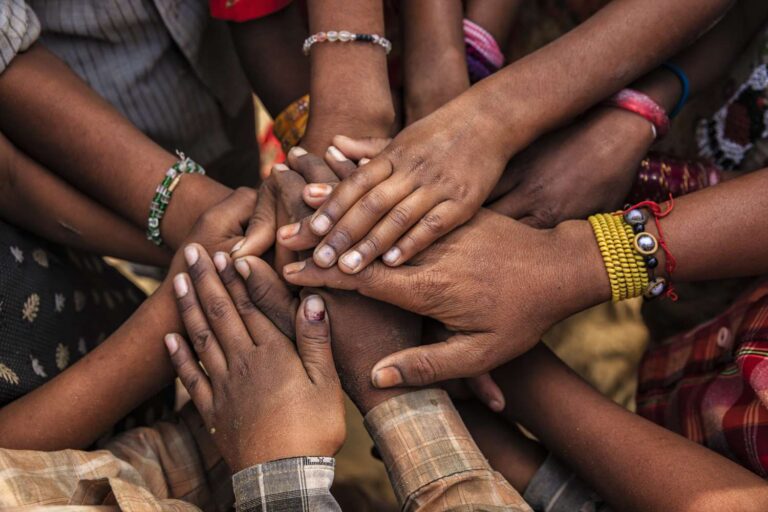Abuja, Nigeria — Africa’s future is not just defined by its potential — it is being propelled by momentum. With one of the world’s youngest populations, vast natural resources, rising digital connectivity, and an innovation culture built on resilience, the continent is positioned to become a major driver of global growth.
But for this growth to be truly transformative, it must be inclusive. That means activating one of Africa’s most underutilised yet powerful resources: the African diaspora.
Beyond Sending Money: A Call for Transformational Investment
Across the globe, millions of Africans abroad contribute to their home countries through remittances, entrepreneurship, education, and advocacy. In 2024, Nigeria’s diaspora sent home nearly $21 billion — more than the nation received in foreign direct investment.
Yet leaders and advocates say the time has come to move from transactions to transformation.
“This isn’t a transactional relationship. It is a strategic partnership,” said Almaz Negash, CEO and founder of the African Diaspora Network (ADN). “Let’s move from giving to growing. From promise to progress.”
Nigeria, home to more than 220 million people and one of Africa’s most influential economies, sits at the heart of this conversation. Nigerian-Americans rank among the most educated and economically successful immigrant groups in the U.S., with household incomes above the national average and a high concentration of advanced degrees.
A Journey of Vision and Action
Negash’s 2024 visit to Nigeria as a member of President Biden’s Advisory Council on African Diaspora Engagement deepened her understanding of the country’s opportunities and challenges.
In Lagos, she met with trade officials, explored special economic zones like Alaro City, and discussed investment strategies with the Deputy Governor of Lagos. At a U.S. Embassy reception, she connected with Nigerian and diaspora business leaders committed to building cross-border partnerships.
In Abuja, she toured the futuristic Centenary City development before joining Nigerian Diaspora Day, hosted by the Nigerians in Diaspora Commission (NiDCOM). The gathering emphasised moving from celebrating diaspora achievements to embedding them in national development plans.
Turning Ideas into Action
Alongside Thelma Ekiyor, Chair of the Nigeria Philanthropy Organisation (NPO), Negash co-hosted a private strategy dinner with leaders from ECOWAS, the Central Bank of Nigeria, and impact investors. Discussions centred on initiatives such as:
-
i-Philanthropy – A platform enabling diaspora and corporate donors to fund job creation and support SMEs in fashion, agriculture, renewable energy, and more.
-
ADN Accelerator Programs – Builders of Africa’s Future and Accelerating Business Leadership and Entrepreneurship for scalable, impact-driven ventures.
-
Beyond Remittances Strategy – Positioning Africa’s $100B+ annual remittances as capital for infrastructure, SMEs, and innovation.
-
Policy Innovations – From the ECOWAS Investment Code to frameworks for intra-Africa mobility and philanthropic capital unlocking.
Tangible Outcomes from Diaspora Day 2025
The event produced a series of actionable commitments, including:
-
A Diaspora Presidential Fellowship Program offering six-month sabbaticals for skilled professionals.
-
Strengthening of the National Diaspora Policy, including progress on diaspora voting rights.
-
Launch of a Diaspora Housing Platform and Mortgage Scheme.
-
Plans for a Diaspora Investment Trust Fund to convert remittances into long-term national assets.
-
Increased focus on youth and STEM innovation, and knowledge exchange to reverse “brain drain” into “brain gain.”
A Call to Invest Differently
Negash argues that African countries cannot afford to frame diaspora engagement purely as charity.
“Africa needs strategic partners, visionary investors, and long-haul builders,” she said. “True returns are not only financial, but social, human, and generational.”
The challenge — and opportunity — lies in organising collective diaspora capital into targeted funds, collaborating across government, philanthropy, and business, and measuring results with transparency.
Africa’s transformation, she stresses, must be shared — ensuring that progress lifts communities in every corner of the continent.
“Let’s make our capital count — not just in numbers, but in lives changed and futures built,” Negash said. “This is the moment to co-create a future where Africa’s success is a collective achievement.”

